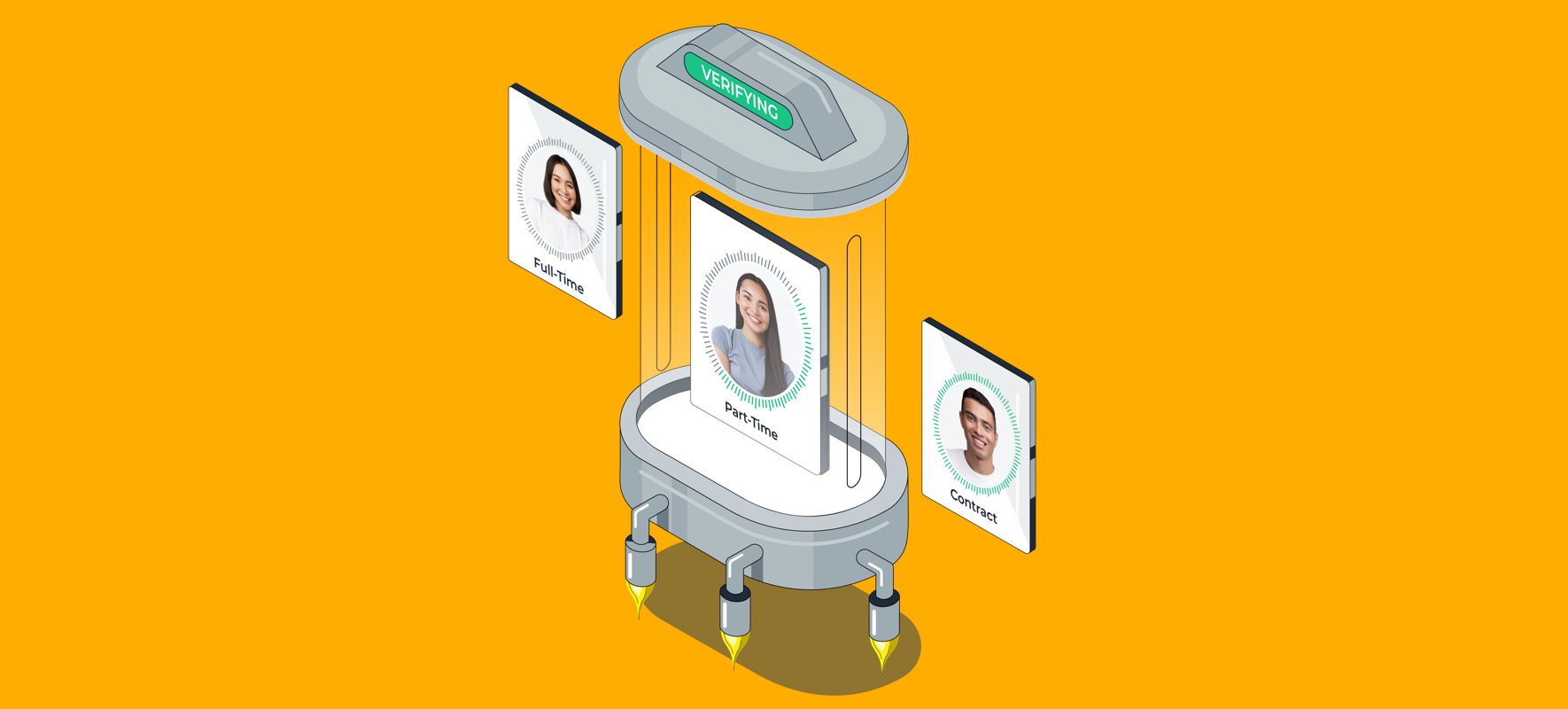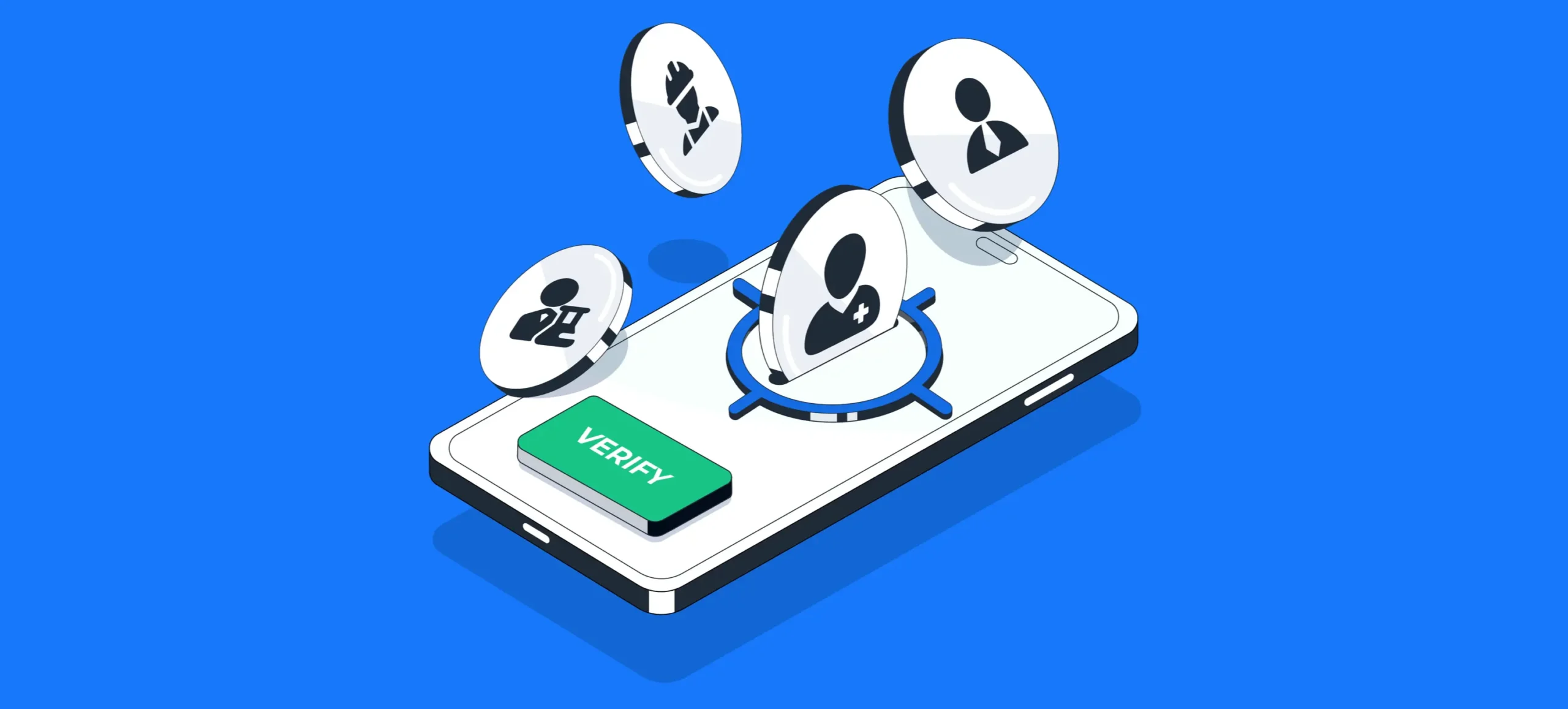Introduction
Risk Doesn’t Check Employment Contracts
It doesn’t matter if someone’s on your payroll for a day or a decade; they can still:
- Access sensitive data and systems.
- Represent your brand to the public.
- Handle money, clients, or assets.
- Work closely with other employees or vulnerable groups.
A bad actor or simply a misrepresented one can cause financial loss, reputational damage, regulatory penalties, or even endanger others. That’s why risk management can’t be limited to permanent hires alone.
Different Roles, Same Need for Trust
Every job type, permanent or temporary, on-site or remote, carries its own risks. What changes is how those risks show up in day-to-day work. Here’s how common employment types can expose your organisation and how background checks help close those gaps before they turn into costly problems.
Full-Time Employees
Risk: Permanent employees are the backbone of your company. They have sustained access to your systems, confidential business information, financial data, and often customer or partner relationships. A bad hire here can mean fraud, data theft, harassment, or reputational damage, and it can go unnoticed for years.
How Background Checks Help:
- Confirm identity and right-to-work to avoid illegal hires or impersonation.
- Verify education and employment history to ensure they’re qualified.
- Check criminal history to flag potential safety or fraud risks.
- Validate professional licenses for regulated roles like finance, healthcare, or legal.
Periodic re-screening protects you as employees change roles or gain higher access.
Part-Time and Seasonal Workers
Risk: Retailers, hospitality, logistics, and events often bring in large numbers of temporary staff. They may have short-term access to stock, cash registers, customer premises, or payment data. High churn makes it easy for people with red flags to slip through.
How Background Checks Help:
- Quick identity checks verify the person is who they claim to be.
- Right-to-work checks protect you from non-compliance penalties.
- Criminal history checks help prevent hiring individuals with theft or violence records.
- A fast, scalable screening process means you can hire at volume without cutting corners.
Contractors and Freelancers
Risk: Independent contractors and freelancers often work unsupervised. They may have direct access to sensitive projects, client data, IT systems, or trade secrets. Because they’re not on payroll, companies sometimes assume they’re lower risk, which can be a costly mistake.
How Background Checks Help:
- Identity verification avoids impersonation or fake profiles.
- Credentials checks confirm they hold the skills or licenses claimed.
- Criminal checks highlight past fraud or misconduct.
- Reference checks validate reputation, especially when the contractor will be customer-facing.
Gig and On-Demand Workers
Risk: Rideshare drivers, delivery riders, home service workers, and gig workers often interact directly with the public. One bad incident can make headlines, ruin trust, or result in legal action. Without a robust check, unsafe or unqualified gig workers can slip through quickly.
How Background Checks Help:
- Driving record checks confirm they’re safe and legally licensed.
- Criminal checks help screen for risks of theft, assault, or misconduct.
- Identity checks ensure gig partners match the name and ID on your platform.
- This protects your customers, your reputation, and your brand’s credibility.
Remote and Global Hires
Risk: Remote hires can be anywhere, often with unrestricted access to your systems, intellectual property, and client files. When you can’t meet in person, there’s a real risk of identity fraud, fake qualifications, or hidden criminal histories.
How Background Checks Help:
- Remote ID verification tools confirm who they really are.
- Global criminal record checks (where legally allowed) uncover known risks.
- Education and work history checks verify credentials, especially for high-trust roles.
- Reference checks provide extra context when you can’t rely on an in-person impression.
Volunteers & Interns
Risk: Volunteers and interns might be unpaid, but they often work with sensitive information, children, elderly people, or vulnerable communities. Many organisations skip checks here, but the reputational fallout from misconduct can be severe.
How Background Checks Help:
- ID and right-to-work checks establish basic eligibility.
- Criminal record checks help ensure safety for at-risk groups.
- Reference checks add context for trustworthiness, especially with young or first-time workers.
Common Types of Employment Background Checks to Consider
A robust background check program can include some or all of these checks, chosen based on the role, industry, and level of risk:
| Checks | What They Do? |
|---|---|
| Address Check | Confirms a candidate’s current or previous residential address. |
| ID Check | Verifies that a government-issued ID is valid and genuine. |
| Passport Check | Confirms passport authenticity and details for identity or international roles. |
| Driver License Check | Checks the license’s validity, status, and any endorsements, which are important for roles involving driving. |
| Right to Work Check | Ensures the candidate has legal permission to work in the country. |
| Civil Litigation Check | Looks for past civil court cases that may pose a reputational or financial risk. |
| Credit Check | Assesses financial responsibility, key for roles handling money or financial advice. |
| Bankruptcy Check | Flags any history of bankruptcies that could indicate financial red flags. |
| Declaration of Integrity | A signed declaration to confirm honesty and ethical conduct. |
| Global Sanctions and PEP Check | Screens for individuals listed on international watchlists or identified as politically exposed persons. |
| Adverse Media Check | Searches media sources for negative coverage linked to fraud, crime, or misconduct. |
| Directorship Check | Identifies any current or past company directorships to help prevent conflicts of interest. |
| Financial Regulatory Check | Verifies standing with relevant financial regulators. |
| Insurance Regulatory Check | Confirms compliance for roles within the insurance sector. |
| Insurance Agent Check | Validates a candidate’s registration and licensing as an insurance advisor or agent. |
| Criminal Check | Searches for past convictions to reduce the risk of workplace crime or misconduct. |
| Social Media Check | Reviews online behaviour to spot potential reputation risks. |
| Education Check | Confirms claimed degrees, diplomas, or certifications are genuine. |
| Employment Check | Verifies previous job titles, dates of employment, and reasons for leaving. |
| CV Check | Cross-checks the details provided in the resume for accuracy. |
| Salary Verification Check | Confirms previous salary details when relevant for senior or sensitive roles. |
| Reference Check | Gather insights from former employers or managers about performance, behaviour, and reliability. |
| Professional License and Membership Check | Verifies active professional licenses or industry memberships required for regulated roles. |
A smart background screening program picks the right combination of these checks based on what the role demands, what the law requires, and what risks you need to manage, so every hire meets your standard of trust.
One Standard for Trust: Employment Background Checks for All Job Types
Every role carries a different type of risk, but the solution stays the same: know exactly who you’re hiring, what they’ve done, and whether they’re fit to represent your brand.
A universal background check policy helps you:
- Hire faster, with fewer surprises.
- Reduce fraud, theft, and compliance breaches.
- Build a safer, more trusted workplace, no matter who’s on the roster.
However, the type and depth of employment background checks should never be one-size-fits-all. The right screening mix depends on:
The nature of the role – a senior executive, delivery driver, or part-time cashier won’t all need the same checks.
The industry you operate in – regulated sectors like finance, healthcare, or transport have mandatory checks and higher compliance requirements.
The level of access or responsibility – more sensitive access usually means deeper vetting.
Local and international legal requirements – different countries have different rules about what checks are permitted.
When done right, employment background checks are flexible enough to adapt to each hire but firm sufficient to uphold one clear standard of trust across your entire workforce.
Key Takeaway: If they have access to your systems, data, customers, or brand, run thorough employment background checks. Risks may differ, but your commitment to protect your people and your business must not.
Secure Every Hire with Confidence!
Stop costly hiring mistakes before they happen, screen smarter and hire right with comprehensive employment background checks.













